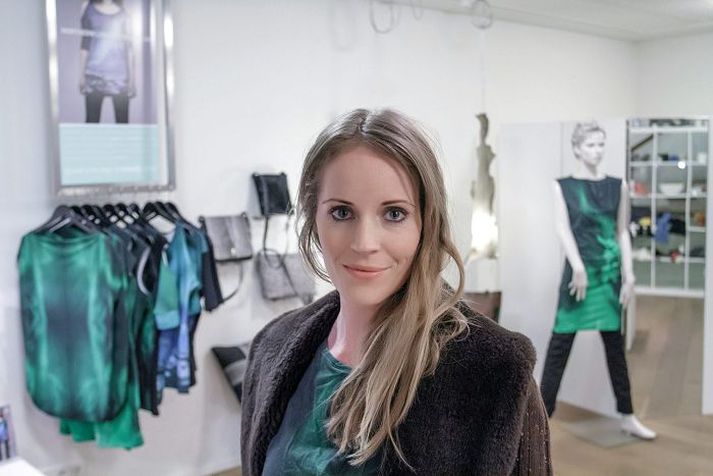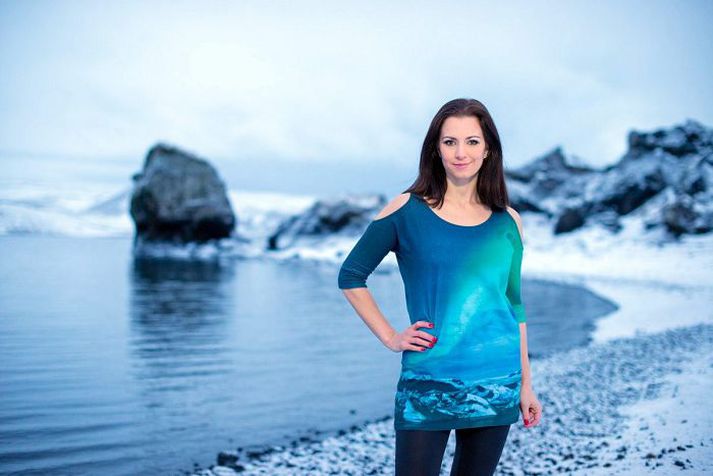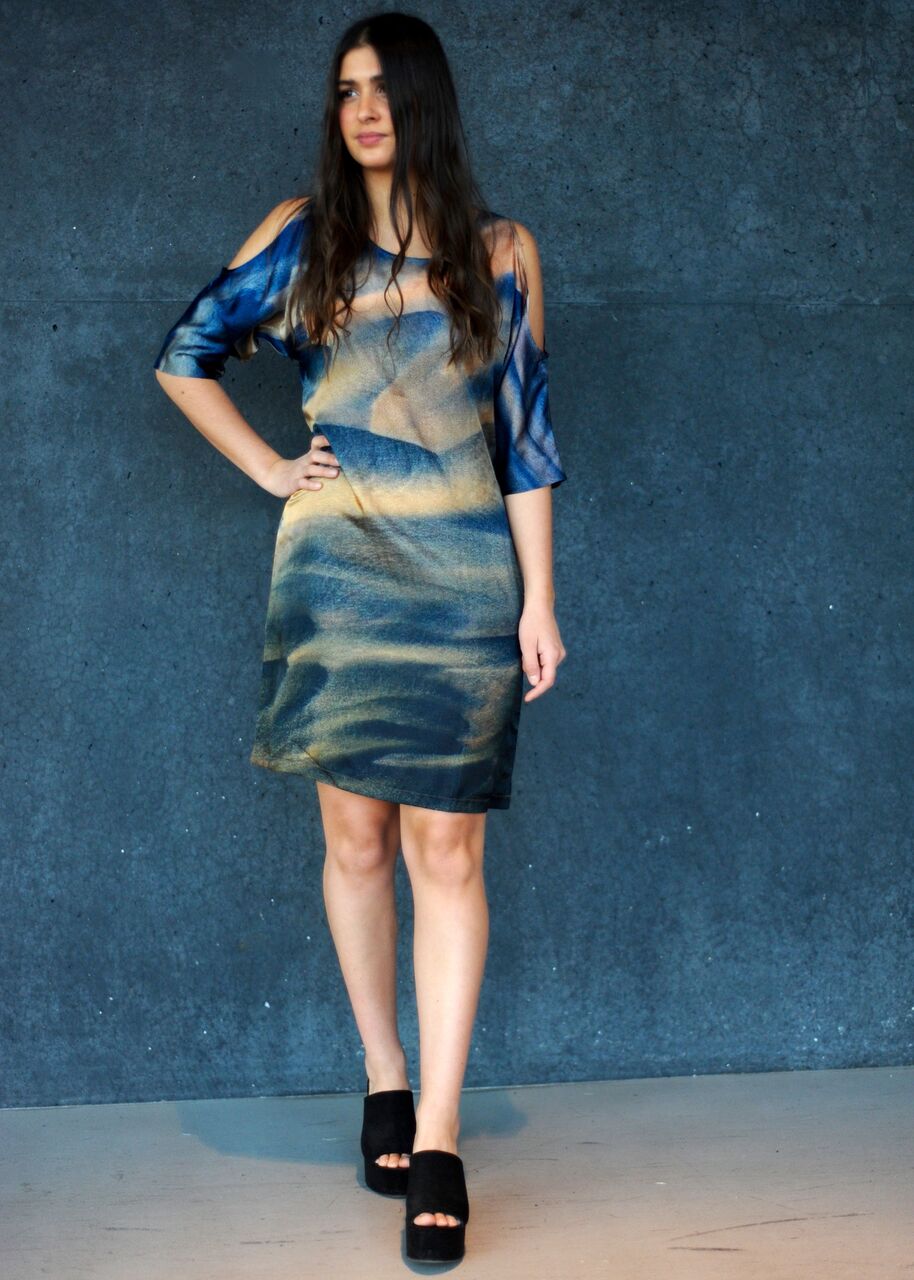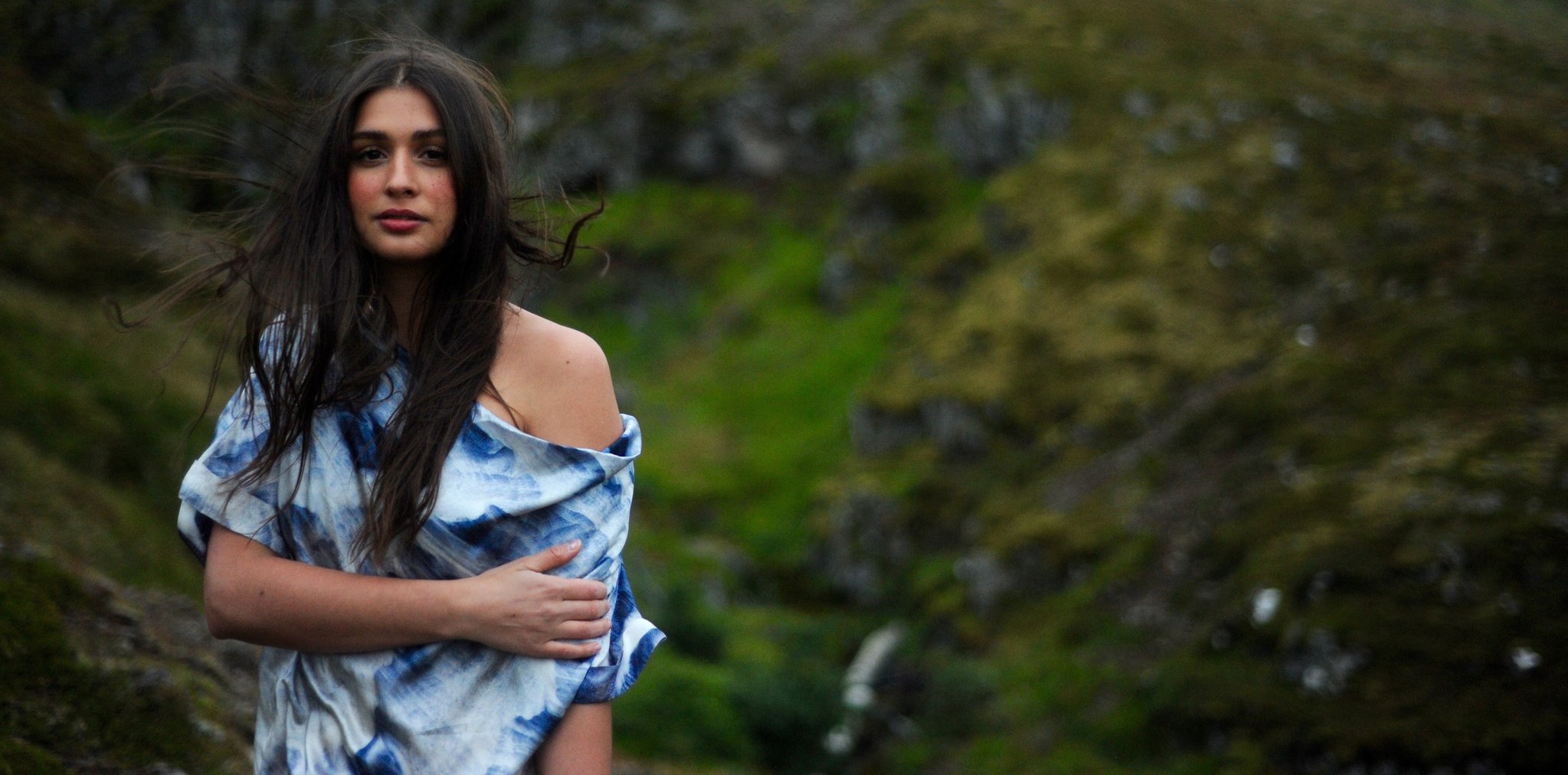Scandinavian fashion has surged in last few years, as a style, but also as a design culture prioritising ethical and sustainable production. The design style often encompasses minimalism, clean lines and neutral tones.
Traditionally, scandi-brands eschew logos and instead focus on excellent design values, which may seem a counterintuitive approach in retail, but, consumers have shown that they are more willing to research and find the brands which will reflect their own values today. It’s a low-key approach, where modesty is more attractive than shameless boasting, and it works.
Dimmblá, a clothing company springing up from Iceland, take their responsibility in combating climate change very seriously. Created in 2014, by Heiðrún Ósk Sigfúsdóttir, Dimmblá’s mission is to create long lasting clothes that leave no waste during production, and, support initiatives that increase environmental protection and sustainable development. I spoke to Heiðrún to find out more:
Q: How do you describe the mission of Dimmblá? What inspired the creation behind Dimmblá?
I was inspired to create a design that reflects the unpredictable mystery that is in nature, from magical waterfalls to gushing hot springs and glacier lagoons. Iceland has a lot of blue and the name Dimmblá is Icelandic for “deep blue”. Although the name is “deep blue” we don’t only have blue colors. We offer many different color patterns in our designs. Our unique patterns are only offered in limited edition and once they are gone they are gone. The first collection was launched in 2013. I decided that I wanted to make a difference by creating sustainable clothes that complement the Dimmblá woman’s existing style so she feels good about what she is wearing. I created a brand for a woman who strives to be confident and comfortable and wants items that reflect her individual style longer and which she can enjoy for many seasons and therefore reduce frequency of apparel purchases.
This aligns with our slogan “Wear it for years and then pass it on to someone you care for”.

In the photo: Heiðrún at a Dimmbla outlet Credit: Dimmbla
Q: What are the major challenges for sustainability in the consumer goods industry and how do you work to get over the challenges?
I believe the critical actors in growing sustainable consumption are the consumers themselves. Sustainability is no longer a nice to have. It’s crucial that we start focusing on meeting the needs of the present without compromising with the ability of future generations to meet their needs. The biggest challenge is that we are a consumption oriented society. The success of individuals, society and businesses as a whole has systematically been linked with consumption. We are often persuaded to spend money we don’t have, on things we don’t need. Our demand as consumers can be a powerful force to encourage companies to switch to more sustainable production practices and to sell more environmentally-friendly products.
Sustainable consumption will remain a niche if the majority of people doesn’t have enough information, possibility or motivation to make sustainable choices. Unless we become a more conscious consumer and only choose within a set of sustainable options sustainability might become a trend. Right now we know that simply buying more and more “stuff” doesn’t make us any happier, and certainly doesn’t promote community cohesion. Smart consumption involves transactions of goods and services that have a positive social benefit, where novelty and implied personal status is far less important than they are today.
There is an opportunity to consume responsibly. Even though the sustainable option is more expensive you can often reduce your consumption by buying long-lasting items instead of cheaper versions several times.
Related article: “AGURK, BREAKING FAST FASHION: AN INTERVIEW WITH CAMILLA KUUS” by Alison Murphy
Q: What have been some major milestones in your journey? Where do you see the direction of Dimmblá heading?
For me major milestones aren’t the number of stores we are in, or contracts we make because the brand wouldn’t exist without our loyal customers. What matters the most is what our customers are sharing about the brand. We’ve been receiving great feedback, and more and more women are joining the “tribe” and becoming Dimmblá’s ambassadors. The love of our brand shines through in the testimonials we’ve been receiving and that are shared on our website. It’s not only about a beautiful design – it’s also about what we stand for, about Dimmblá’s “universe” and about the Dimmblá woman’s everyday life. This is what we share in social media, newsletters and on our blog. It’s a victory for myself when a customer links the brand with a powerful, confident woman who takes on those attributes when wearing Dimmblá.
I want to continue building a strong internationally acclaimed conscious style brand with innovative fabrics, unique prints, an interesting story and effective participation in preserving the environment.

In the photo: Dimmbla product in Iceland’s iconic scenery Credit: Dimmbla
Q: What message or advice does Dimmblá have for other companies focusing on supporting the environment and local suppliers?
The whole consumption trend and habits aren’t supporting environmental protection. The pressure to produce fashion too quickly has developed into a system of high inventory turnover, and that’s where the trouble comes in. We used to have two to four fashion seasons every year. Now, fast fashion brands produce 50 to 100 micro seasons a year, increasing our need to constantly buy new things, and that’s changing the way the fashion industry works. We’re buying 400 percent more clothes than we did just 20 years ago.
If fast fashion would be removed from the equation it’s more likely we’d have more companies producing higher quality, low quantity products that would last longer and create more value. Companies should focus on messages about quality, durability and relationships. Talking about how consumers purchase products, how to conserve energy, what products we choose to buy and tell stories that connect.

In the photo: Dimmbla products Credit: Dimmbla
Q: What are your views on the direction that sustainability is heading? What are some ways the average citizen can contribute towards sustainability?
Even though a product is labelled green it doesn’t necessarily help us identifying products that are genuinely environmentally friendly. Large fast fashion brands are talking about sustainability and some have started to produce collections made in sustainable and recycled fabrics and encourage garment recycling. Distracting customers from the harms the company does when producing giant piles of cheap clothes every year, which puts tremendous strain on the environment and high quantity of it ends as a landfill waste. Instead sustainability should be about buying yourself nicer things you want to keep forever and discover incredible products by reading stories of craftsmanship and quality.
Sustainability is a benefit rather than a sacrifice. Perhaps in an ideal future unsustainable products or services will no longer be available. But until then we need to continue to make simple changes that can lead to new habits. You can easily start to change small, everyday actions that will benefit the environment. There’s so much the average citizen can do and we inspire everyone who wants to become more conscious in our newsletters.
Editors note: The opinions expressed here by Impakter.com columnists are their own, not those of Impakter.com










